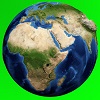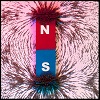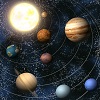IPad Apps

Rocks and Minerals

Structure of earth

Simple Machines

Magnets

Animal Adaptations

Plant Adaptations

Diseases

Solar System
Welcome to FunAppSchool

IPad and IPhone Apps
Educational Games for IPad and IPhone. English Grammar and Science Apps for Elementary and Middle School Kids.
Edwin Hubble (1889-1953)
Astronomer, Hubble Law, Hubble Sequence
Edwin Powell Hubble was born on the 20th of November 1889 in Missouri to an insurance executive John Powell and his wife Virginia James.
Hubble is famous for his work in astronomy where he contributed with the Hubble law, and the Hubble Sequence.
During his childhood however, he was more famous as a sportsman than as an academic, even though he did quite well in all subjects except spelling.
At university, in America, and later England, he studied mathematics, philosophy, astronomy, jurisprudence, literature and Spanish.
His father passed away when he was 24 years old and still in university in England so Hubble came back to America to look after his mother and brothers and sisters.
He started teaching at a local high school and coached the boys basketball team for a year before he went onto study for his PhD in astronomy.
He was offered a job at the Yerkes Observatory to work in the area of astronomy, but since it was during World War I, Hubble joined the army.
He served his country well, and rose to the rank of Major before he was injured in battle and was discharged.
He went to work at the Mount Wilson Observatory, still in uniform and worked there till he died.
Hubble’s many hours of studying the skies led him to believe in the nature of galazies and that there were other galaxies like our own “Milky Way” out there.
He wondered if the spiral nebulae (fuzzy clouds of light seen in the night sky) had separate stars within our own galaxy or if they were part of separate galaxies called ‘island universes’.
In 1924 he measured the distance to the Andromeda nebula and concluded that it was hundred thousand times away from the nearest star, so it has to be a separate galaxy as big as our Milky Way, but way further away.
This discovery was a very important one because before this many believed that our galaxy was the only one that existed. Hubble’s discovery changed our understanding.
He also proposed the Hubble’s Law. This law said that the amount of redshift in light coming from a galaxy increased as the galaxy moved away from earth.
This meant that the universe is expanding or increasing. Einstein himself said later on that he was a fool to have ignored such an important point.
Hubble also put forward a system of categorizing galaxies according to how they appeared when they were photographed. These different groups are called the Hubble Sequence.
Even though he is not known famously for it, he also discovered asteroid 1373 Cincinnati on the 30th of August 1935.
Hubble made these great discoveries from the 100-inch Hooker Telescope, at Mount Wilson Laboratory. At that time, this telescope was the most powerful in the world.
Unfortunately, during his lifetime the Nobel Prize was not given for astronomy; only for physics. Even though this was changed later on, it was too late because Hubble was no more. This award is only given while the scientist is alive.
In honour of his great work in the area of astronomy, which shaped the way we understand the world and universe we live in, many things including the Hubble Space Telescope, which is currently orbiting the Earth, are named after him.
The powerful images the Hubble Space Telescope send back to earth gives us some beautiful and educational pictures of the universe beyond us.
He was also working on a newer telescope the 200-inch Hale telescope, which he finished just before he died on the 28th of September 1953.







